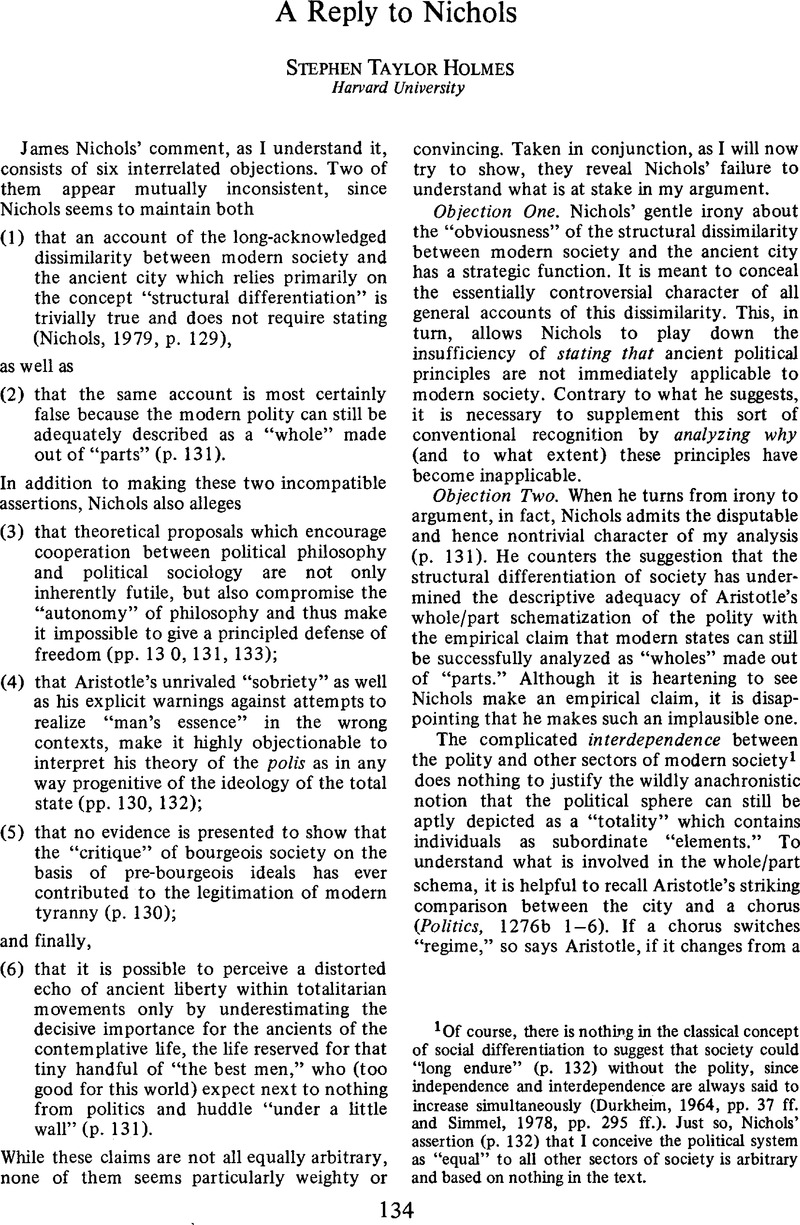Crossref Citations
This article has been cited by the following publications. This list is generated based on data provided by Crossref.
Jirsa, Jakub
2010.
Value pluralism, Sophocles' Antigone and liberalism.
Aither,
Vol. 2,
Issue. 4,
p.
69.
Last updated 09/07/24: Online ordering is currently unavailable due to technical issues. We apologise for any delays responding to customers while we resolve this. For further updates please visit our website: https://www.cambridge.org/news-and-insights/technical-incident

Published online by Cambridge University Press: 01 August 2014

Comments
No Comments have been published for this article.